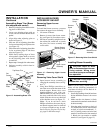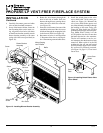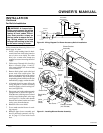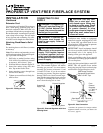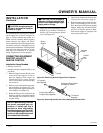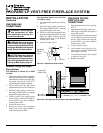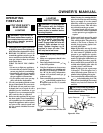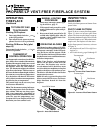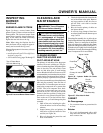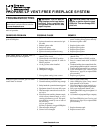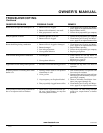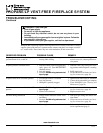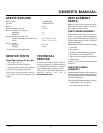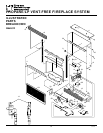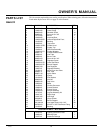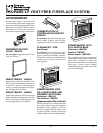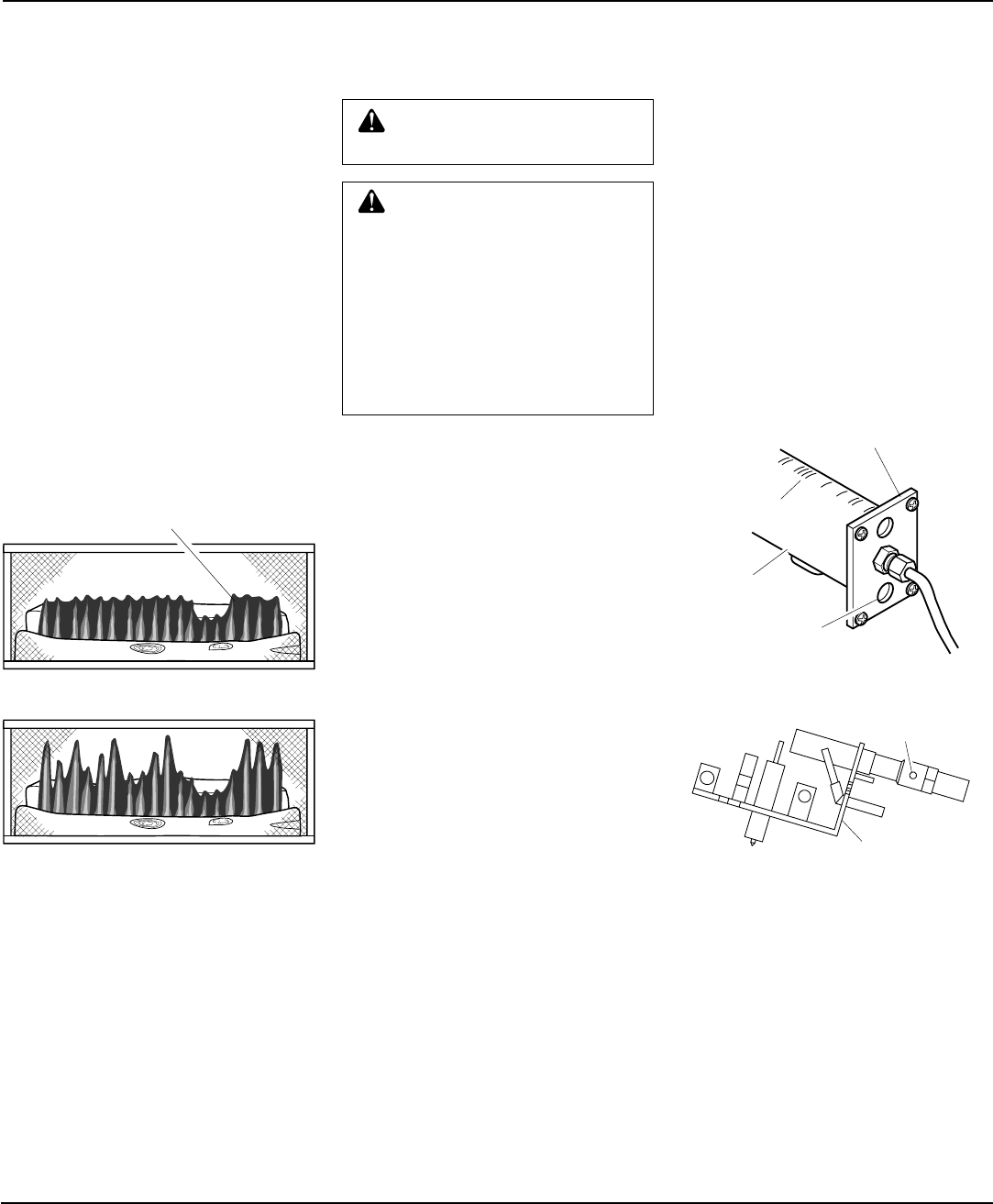
19
107106
OWNER’S MANUAL
BURNER FLAME PATTERN
Figure 34 shows a correct burner flame
pattern. Figure 35 shows an incorrect burner
flame pattern. The incorrect burner flame
pattern shows sporadic, irregular flame tip-
ping. It also shows the flame consistently
higher than one inch above the log.
Note:
When using the fireplace the first
time, the flame will be orange for approxi-
mately one hour until the log cures.
If burner flame pattern is incorrect, as shown
in Figure 35
• turn fireplace off (see To Turn Off Gas to
Appliance, page 18)
• see Troubleshooting, pages 20 through 22
Figure 34 - Correct Burner Flame Pattern
Figure 35 - Incorrect Burner Flame Pattern
Top of Flame About
One Inch Above Log
INSPECTING
BURNER
Continued
CLEANING AND
MAINTENANCE
CABINET
Air Passageways
• Use a vacuum cleaner or pressurized air
to clean.
Exterior
• Use a soft cloth dampened with a mild
soap and water mixture. Wipe the cabi-
net to remove dust.
WARNING: Turn off fireplace
and let cool before cleaning.
CAUTION: You must keep con-
trol areas, burner, and circulating
air passageways of fireplace
clean. Inspect these areas of fire-
place before each use. Have fire-
place inspected yearly by a quali-
fied service person. Fireplace may
need more frequent cleaning due
to excessive lint from carpeting,
bedding material, pet hair, etc.
CLEANING BURNER
INJECTOR HOLDER AND
PILOT AIR INLET HOLE
The primary air inlet holes allow the proper
amount of air to mix with the gas. This pro-
vides a clean burning flame. Keep these holes
clear of dust, dirt, lint, and pet hair. Clean
these air inlet holes prior to each heating
season. Blocked air holes will create soot. We
recommend that you clean the unit every three
months during operation and have heater in-
spected yearly by a qualified service person.
We also recommend that you keep the burner
tube and pilot assembly clean and free of
dust and dirt. To clean these parts we recom-
mend using compressed air no greater than
30 PSI. Your local computer store, hard-
ware store, or home center may carry com-
pressed air in a can. You can use a vacuum
cleaner in the blow position. If using com-
pressed air in a can, please follow the direc-
tions on the can. If you don't follow direc-
tions on the can, you could damage the pilot
assembly.
1. Shut off the unit, including the pilot.
Allow the unit to cool for at least thirty
minutes.
2. Inspect burner, pilot, and primary air
inlet holes on injector holder for dust
and dirt (see Figure 36).
3. Blow air through the ports/slots and
holes in the burner.
Figure 36 - Injector Holder On Outlet
Burner Tube
4. Check the injector holder located at the
end of the burner tube again. Remove
any large particles of dust, dirt, lint, or
pet hair with a soft cloth or vacuum
cleaner nozzle.
5. Blow air into the primary air holes on
the injector holder.
6. In case any large clumps of dust have
now been pushed into the burner repeat
steps 3 and 4.
Clean the pilot assembly also. A yellow tip on
the pilot flame indicates dust and dirt in the pilot
assembly. There is a small pilot air inlet hole
about two inches from where the pilot flame
comes out of the pilot assembly (see Figure 37).
With the unit off, lightly blow air through the
air inlet hole. You may blow through a drinking
straw if compressed air is not available.
Burner
Tube
Injector Holder
Primary Air Inlet
Holes
Figure 37 - Pilot Inlet Air Hole
Ports/Slots
Pilot Assembly
Pilot Air
Inlet Hole



